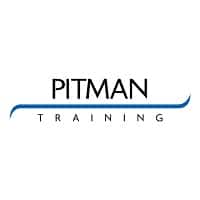Course Description
Microsoft 70-762 – Developing SQL Databases – Live Practice Lab
Global Edulink
Overview:
Would you like to achieve an excellent online accredited Microsoft qualification, which will demonstrate a high level of skill and knowledge? Look no further than this fantastic 70-762 Developing SQL Databases Practice Lab course.
Microsoft Practice Lab courses demonstrate a high level of skill, and have been expertly created for IT professionals who hope to become certified. To gain a Microsoft certification, you’ll need to take a theory course, and a Practice Lab course. This Global Edulink 70-762 Practice Lab will provide excellent training which will guarantee your success in your chosen exam. For those hoping to take the 70-762 exam, this Practice Lab is a must.
The 70-762 Practice Lab will provide you with the necessary platform to gain hands on skills Microsoft SQL Server 2016. By completing the Practice Lab tasks, you will improve your practical skills in designing and implementing database objects, implementing programmability objects, managing database concurrency and optimizing database objects and SQL infrastructure. These same tasks will help you understand the objectives and competencies required by the Microsoft 70-762 Developing SQL Databases exam.
Learning with Global Edulink has many advantages. The course material is delivered straight to you, and can be adapted to fit in with your lifestyle. It is created by experts within the industry, meaning you are receiving accurate information, which is up-to-date and easy to understand.
This course is comprised of professionally narrated e-Learning modules, interactive quizzes, tests and exams. All delivered through a system that you will have access to 24 hours a day, 7 days a week for 365 days (12 months). An effective support service and study materials will build your confidence to secure your qualification.
As part of this Practice Lab course, you will:
- Complete exam based practical tasks
- Experience realistic problems which will prepare you for work
- Develop practical skills
- Use real equipment
- Have access to the latest industry technologies
Course Curriculum
1: Designing A Relational Database Schema
2: Creating Indexes
3: Best Practices In Index Creation
4: Creating And Implementing Views
5: Creating Columnstore Indexes
6: Maintaining Columnstore Indexes
7: Creating Constraints
8: Effects Of Contraints On Dml Statements
9: Creating Stored Procedures With Parameters
10: Error Handling And Streamlining Stored Procedures
11: Creating Triggers
12: Creating User-Defined Functions
13: Impact Of Transactions On Dml Statements
14: Implicit And Explicit Transactions – Creating Savepoints
15: Manage Isolation Levels
16: Serializable And Snapshot
17: Identifying And Analyzing Locking Issues
18: Implementing Memory-Optimized Tables And Native Stored Procedures
19: Optimizing Statistics
20: Optimizing Indexes
21: Optimizing Query Plans Part 1
22: Optimizing Query Plans Part 2
23: Monitoring Performance Using Sql Trace And Extended Events
24: Optimizing Performance For Database Instances Part 1
25: Optimizing Performance For Database Instances Part 2
Course Objectives:
- Gain an accredited Microsoft qualification
- Design and implement database objects (25–30%)
- Implement programmability objects (20–25%)
- Manage database concurrency (25–30%)
- Optimize database objects and SQL infrastructure (20–25%)
Course Benefits:
- Gain an accredited Microsoft qualification
- Access to excellent quality video tutorials
- Learners will be eligible for an NUS Discount Card
- One year’s access to the course
- Support by phone, live chat, and email
- Join a friendly online learning platform
Method of Assessment:
At the end of the course learners will be assessed by an official exam. Please note that we do not provide the official exam, which you will need to purchase separately.
Recommended Experience:
This exam is intended for database professionals who build and implement databases across organizations and who ensure high levels of data availability. Their responsibilities include creating database files, data types, and tables; planning, creating, and optimizing indexes; ensuring data integrity; implementing views, stored procedures, and functions; and managing transactions and locks.
Certification:
Successful learners will be awarded a 70-762 Developing SQL Databases certificate.
Awarding Body:
Whether you’re an established IT professional or are new to the field, Microsoft online IT training from Global Edulink will give you the expertise you need in a specific product or technology. When you learn from Global Edulink Microsoft Certified Trainers, you can be confident that what you’ll learn will be accurate, complete and up to date. Microsoft Certifications supplied by Global Edulink will take you from the start of your career to its pinnacle. These certifications will increase your visibility, differentiate you from your peers, and validate your knowledge and skills.
| Course Code | GEL476 |
| College Name | Global Edulink |
| Course Category | Computers & IT (Information Technology), Windows |
| Course Type | Online Learning |
| Course Qualification | Level 1 Certificate |
| Course Location | Dublin, UK |
| Course Start Date | 23rd October 2018 |
| Course Fee | 101 |
| Course Duration | 365 Days |
| Awarding Body | Microsoft |
| Title of Awarding | 70-762 Developing SQL Databases certificate |
| Entry Requirements | Learners should be age 16 or over, and must have a basic understanding of Maths, English, and ICT. |
| Career Path | Upon successful completion of the 70-762 Developing SQL Databases course you could go on to study other Microsoft professional qualifications. Alternatively, you could begin working as an IT professional, and could become any of the following: • Systems Engineer (average UK yearly salary according to payscale.com: £30,519) • Customer Support Engineer (average UK yearly salary according to payscale.com: £26,176) • Windows Server Administrator (average UK yearly salary according to payscale.com: £30,164) • Network Engineer (average UK yearly salary according to payscale.com: £30,354) • Systems Analyst (average UK yearly salary according to payscale.com: £30,281) |


